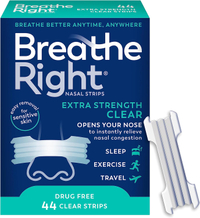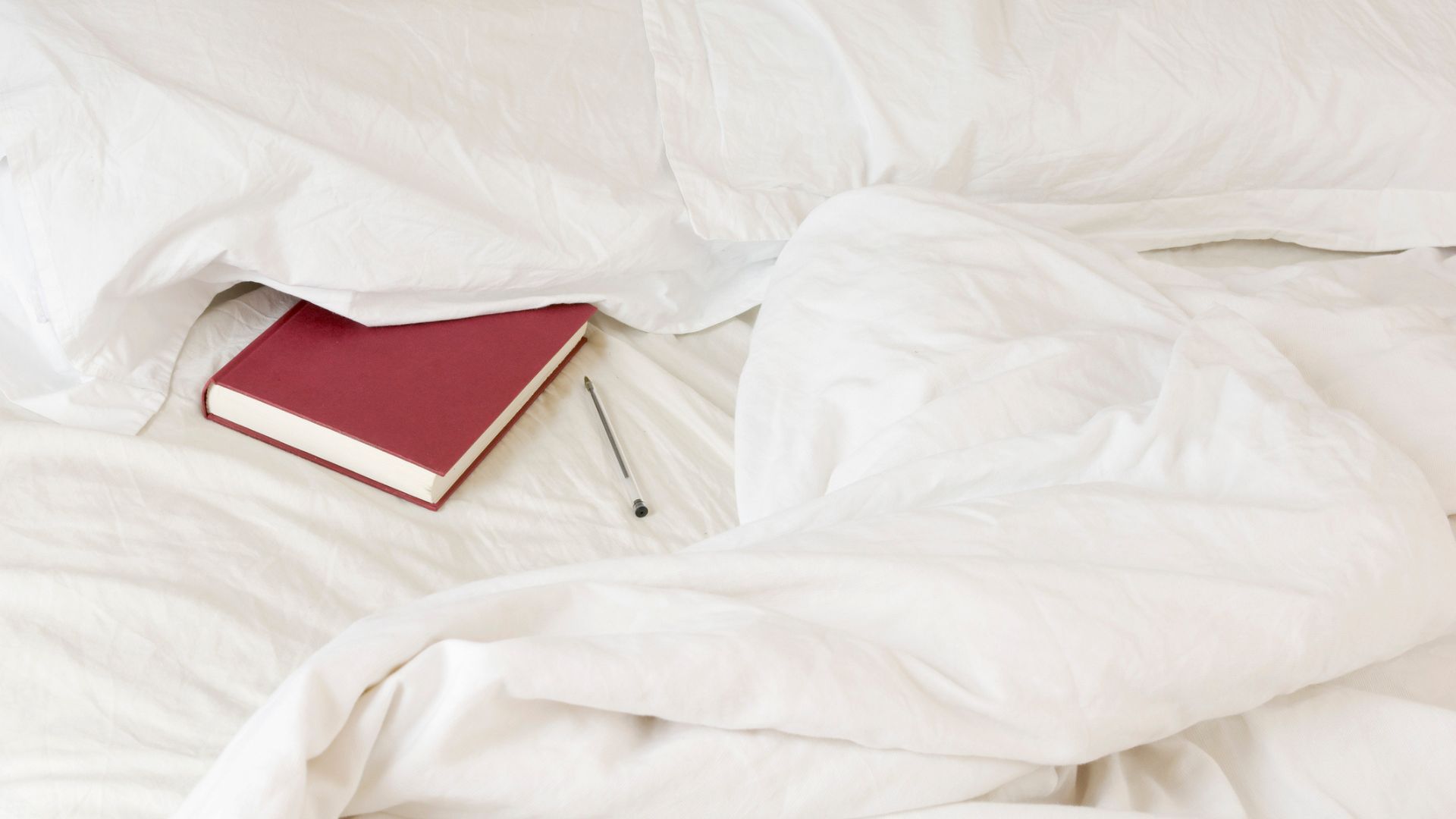I tested 3 anti-snoring devices — only one stopped my partner snoring
I put three anti-snoring devices to the test to see which could stop my partner from snoring
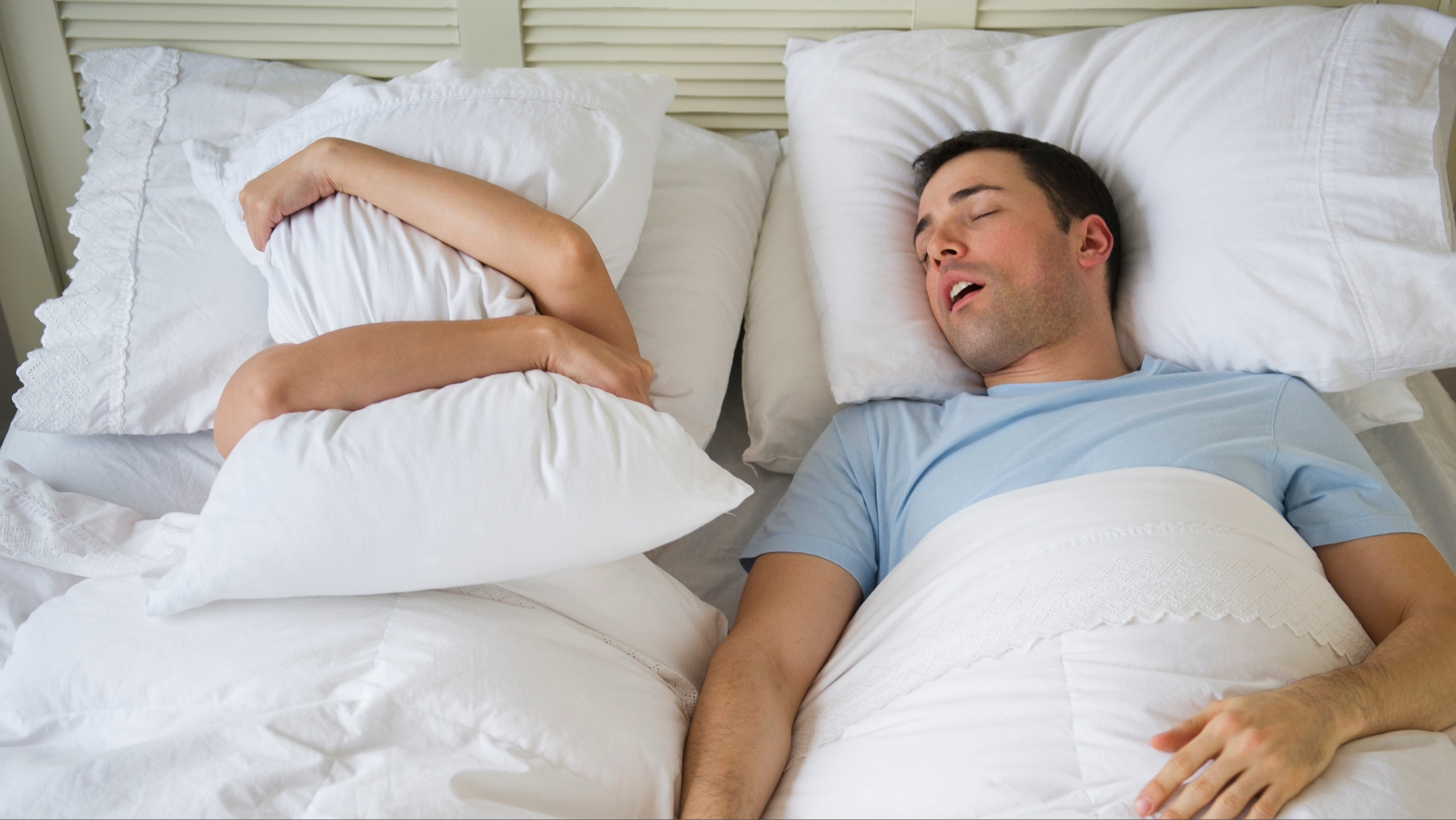
Anyone who sleeps next to a partner who snores will be keenly aware of that moment that makes your heart sink. You’re just drifting off and, suddenly, you're not. Instead, you're doomed to listen to what must be one of the most annoying sounds in the world.
Not only does a partner's snoring ruin your sleep, but it's one of the leading causes of sleep divorce. While all of the beds included in this year’s best mattress guide focus on ways to ensure comfort and support for all occupants, there aren't too many that tackle the issue of snoring.
So, it's time for action. I’ve taken it upon myself to subject my partner to a barrage of gadgets, pillows, and even straps (yep, straps), all designed to prevent snoring. For my own sanity, I need to find the best anti-snoring devices out there and answer the age old question, how to cope with a partner who snores?
What we tested and how it worked
After some research into the most effective anti-snoring devices, I chose three different items: nasal strips, a wedge pillow, and a chin strap. These have been championed for keeping the airways open and preventing them from collapsing, a leading cause of snoring.
My partner is a back sleeper, and I’m woken up every night by his snoring, so we decided to test each product twice and see if I noticed any change. Some were effective, while others actually seemed to worsen the issue.
Anti-snoring devices ranked from worst to best
The VeraLabs Air Flow Jaw Strap at Amazon
Pros:
- Free eye mask included
Cons:
Sign up to get the BEST of Tom's Guide direct to your inbox.
Get instant access to breaking news, the hottest reviews, great deals and helpful tips.
- Worsened snoring
- Uncomfortable to wear
- Didn’t fit all sizes
- Caused strain on the neck
How anyone has managed to sleep in this, I do not know. But kudos to my partner for trying. This strap is designed to fit comfortably around the head, with adjustable hook-and-loop straps to help it fit all sizes.
The purpose of this is to keep the mouth shut during the night and to position the jaw in a way that prevents the airways from collapsing, therefore stopping snoring.
While the material was soft, it still seemed a little tight on my partner’s head, which meant his face was squashed and his cheeks were pushed up. As you can imagine, it wasn’t the most comfortable position. Because of this and the added pressure on his nostrils, his nose was stuffier than usual. And yep, you guessed it, this led to worse snoring than before.
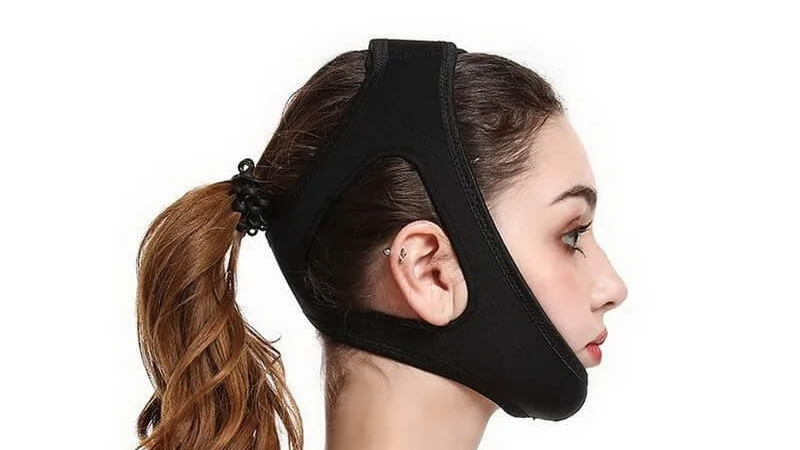
To top it off, my partner said the way the strap pulled on his head meant that his neck ached, making him sore the next day. I ended up telling him to take the strap off at 2am, and as soon as he did, we both slept peacefully.
It’s a struggle to think of any benefit here, aside from the fact that it includes a free face mask. If you’d like to try it for yourself, the VeraLabs Air Flow Jaw Strap is currently from $12.99 at Amazon.
Bekweim Bed Wedge Pillow at Amazon
Pros:
- It came with a free cover
- Affordable price
Cons:
- Extremely firm
- Strong off-gassing
- Worsened snoring
The basic purpose of a bed wedge pillow is to comfortably raise your chest, shoulders, neck, and head as you sleep. This position prevents the airways in your throat from collapsing which can lead to snoring and sleep apnea.
The first thing I noticed when I unwrapped this pillow was the strong off-gassing. There was a potent smell in the house for at least a day. The second thing I noticed was how firm it was. There was no give whatsoever and it felt completely solid, despite having a 2” gel memory foam top and a foam base.
I was initially hopeful for this method, thinking it seemed like a great solution for my partner to comfortably sleep on his back and for me to sleep peacefully next to him.
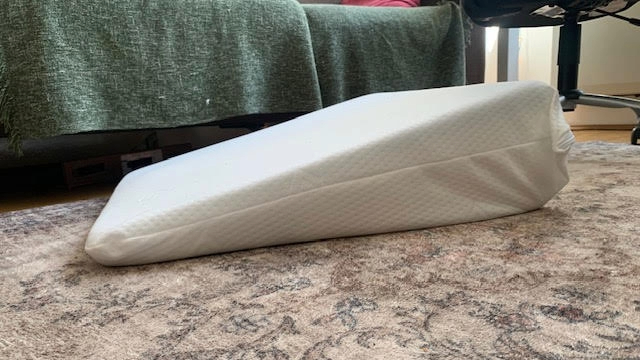
While I do think that a higher-quality wedge pillow like the Avocado Organic Latex Wedge Pillow could be a good solution, the Bekweim pillow was definitely not. The extra firm feel meant there was no getting comfortable. And without any give, my partner simply slid down it in the night, making his neck even more angled, and leading to louder, more disruptive snoring.
I certainly would not recommend this particular pillow, but not everyone will have the same experience. If your partner enjoys a firm surface, then you can get the Bekweim Bed Wedge Pillow from just $27.96 at Amazon.
Breathe Right Extra Strength Nasal Strips
Pros:
- Comfortable
- Clear, discreet look
- Effective at preventing snoring
- Affordable
Cons:
- Can be a little difficult to take off
Ding, ding, ding. We have a winner! Finally, we found a solution. While I had heard a lot about Breathe Right Nasal Strips, I was skeptical about how effective a strip across the nose could be, especially after already having tested industrial straps and browsing big plastic mouthpieces. Thankfully, I couldn’t have been more wrong.
The strips are made from clear plastic with a medical-grade 3M adhesive, meaning once it’s on, it’s not going to fall off. They initially felt a little strange, but after a few minutes it was easy for my partner to forget they were even there. The flexible spring-like bands gently pull your nostrils open, increasing the airflow by 31%. It was a genuinely noticeable improvement.
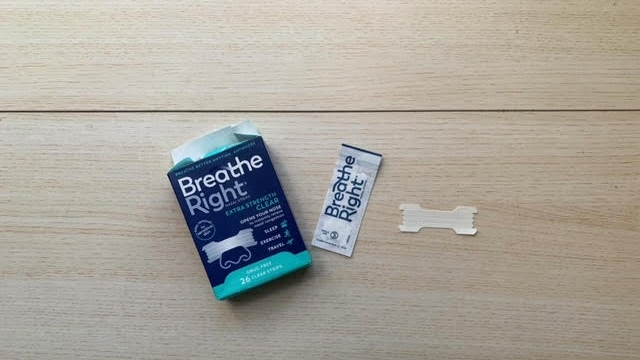
My partner slept soundly and, while he did start snoring once or twice, it was a lot quieter and it stopped a lot more quickly. The extra airflow meant he didn’t feel the need to open his mouth in the night.
I decided to try them, too, and I was shocked at how effective they were, immediately unblocking any congestion I had.
It shouldn’t come as a surprise, considering these strips have been proven to reduce snoring and even help with sleep apnea. It’s safe to say that these will now be a staple in our home, especially considering how affordable they are, for just $16 a pack of 26 Breathe Right Extra Strength nasal strips at Amazon.
Breathe Right Nasal Strips: was $19 now $16 @ Amazon
The Breathe Right Nasal Strips proved to be the most effective way to control snoring in our testing. They provide relief for nighttime nasal congestion due to cold, allergies, or deviated septum. The flexible spring-like bands gently pull your nostrils open, increasing airflow by up to 31%. As a result, you can breathe and sleep better at night.
Other effective ways to stop snoring
Choose the right pillow
Your pillow should cradle your neck and head while offering support and proper spine alignment in the position you sleep in.
If you or your partner are back sleepers, a pillow that’s too soft might make your head tilt too far back. This could make it more likely that your mouth and jaw will fall into an improper position and cause snoring. Use this year’s best pillow guide to find the right choice for you.
Alternatively, you could try anti-snore pillows that stop you from rolling over onto your back. Choosing the right pillow will ensure you’re sleeping in the optimum position for your health.
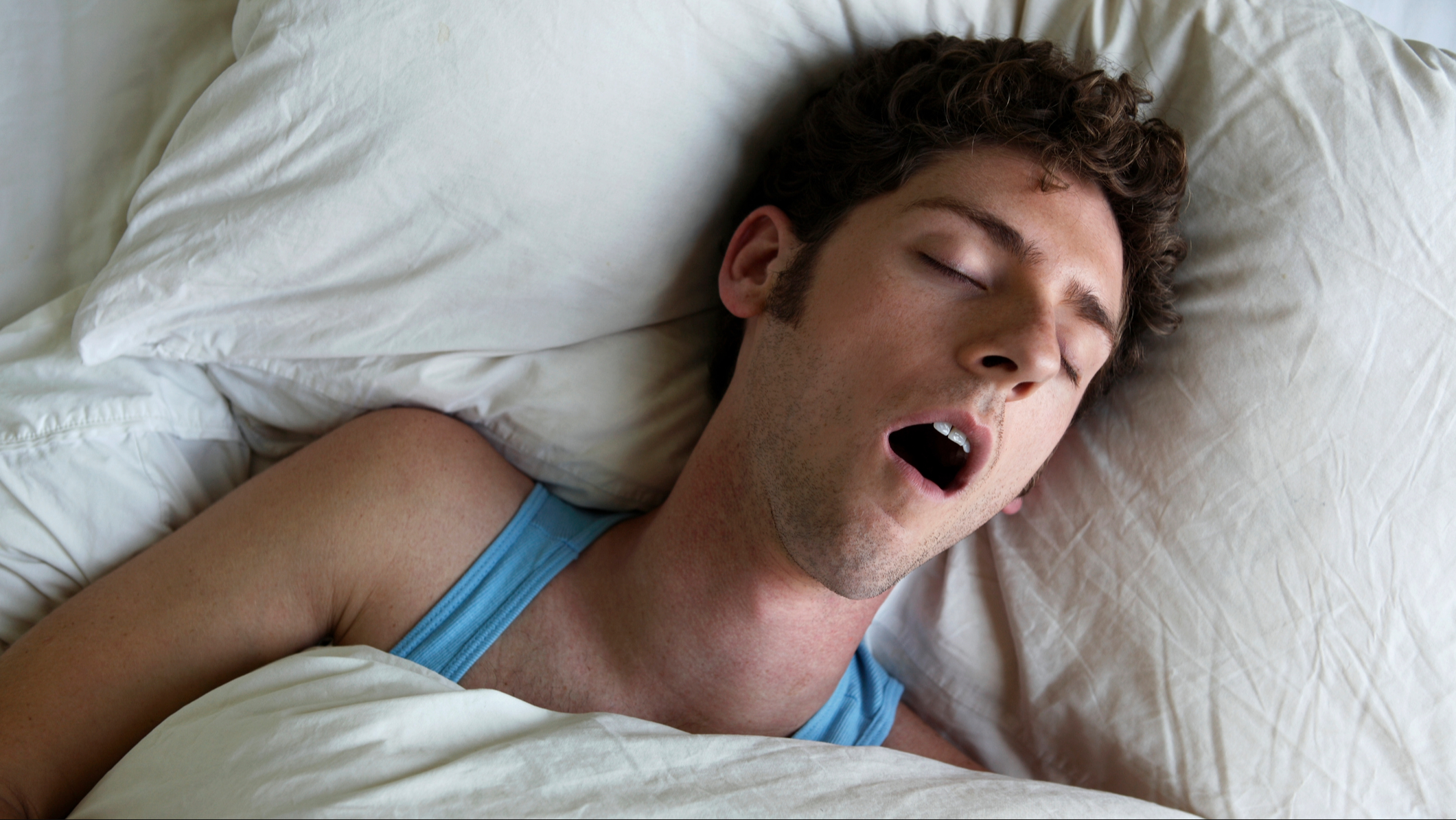
Have a bath or shower before bed
Having a bath or shower before bed can help reduce any nasal congestion that can build up and block the airways. Clearing the airways will reduce nasal resistance, leading to easier breathing and a lower chance of snoring.
Alongside this, stepping from a warm bath or shower into a cooler bedroom can lower your core body temperature. This is a key indicator to your body that you’re ready to sleep, speeding up melatonin production and helping you fall asleep quicker.
Invest in a smart mattress
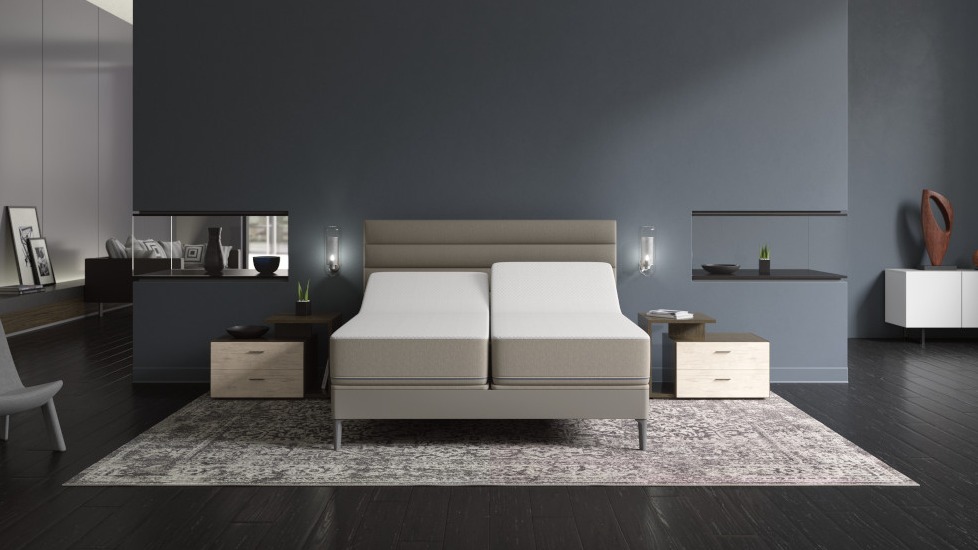
If you’ve got the budget, then a smart mattress could be your savior. This year’s best smart mattresses are adjustable and have in-built sensors that can detect snoring. If snoring is detected, the mattress will gently elevate the sleeping position of your partner to help stop it.
Alongside this, they usually have adjustable firmness levels. This means that you and your partner’s sleeping position can be accommodated for, which also reduces the likelihood of sleeping in a position that causes snoring.

Lauren is an experienced writer and editor in the health and lifestyle industry and has led many campaigns and projects that deliver news, advice, and research on all things sleep. As the Sleep Features Editor for Tom’s Guide, Lauren writes, commissions and edits sleep and mattress content, from in-depth how-tos in sleep and mattress health to interviews with doctors and neuroscientists on the latest news in sleep. Lauren regularly tests new sleep tech and accessories to evaluate their effectiveness for getting good quality sleep and easing specific sleep struggles like nighttime anxiety. Alongside this, Lauren reports on the best mattress brands out there, like Helix, Saatva, and DreamCloud, helping readers find the right mattress for them and the best deals on them.
